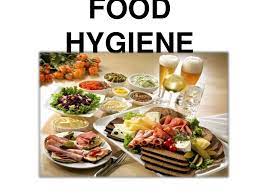Description
NOTE: No Abstract
Food hygiene is an increasingly important public health issue. Governments all over the world are intensifying their efforts to improve food safety. These efforts are in response to an increasing number of food safety problems and rising consumer concerns. The action of monitoring food to ensure that it will not cause food-borne illness is known as food safety. Food safety continues to be a public health problem worldwide because food borne illnesses are widespread. Consequently, consumers are increasingly concerned about food safety and quality; and demand more transparency in production and distribution. Reports have it that food borne and waterborne diarrhoeal diseases together kill about 2.2 million people each year.
Although food contamination may occur at any point from production, processing, distribution and preparation, food vendors and other people responsible for food preparation have a critical role in the occurrence and spread of food borne illnesses as their hands and other body parts may harbour micro-organisms and their actions as well, may compromise the chain of safety from “farm-to-fork”. Indeed, previous studies have implicated food vendors and have shown improper food preparation practices in domestic kitchen, contaminated equipment and food, to be a significant origin of most of these cases. Other factors that have been cited as contributing to food borne diseases include unsafe keeping of food (temperature and time), poor personal hygiene and food from unsafe sources.
Knowledge of food hygiene essentially entails the vendors‟ awareness of things to be done or things to be put in place, in the course of either acquiring raw food materials, preparing food or serving food to consumers, so that food safety is achieved. This knowledge encompass knowing that obtaining raw materials (perishable and non-perishable food items) for food preparation from good sources, the correct storage methods for different food items, proper separation of raw food items from ready-to-eat food, the need to wash hands correctly after being exposed to certain contaminants, proper waste management, the importance of cooking food at the right temperature and for the correct duration, the importance of proper dressing & observance of personal hygiene, the importance of proper washing of fruits and vegetable, availability of wholesome portable water for drinking etc all have critical roles in ensuring the safety of food/drink for the unsuspecting consumers.
In line with one of the objectives of this study, that is, assessing food hygiene knowledge among food vendors, an attempt is being made to review other studies done by researchers on same subject for the sake of in-depth understanding of the general trend of events with regards knowledge of food hygiene by vendors.
A study by Nigusse and Kumie11 to assess food hygiene practices and prevalence of intestinal parasites among two hundred and seventy seven (277) food vendors working in Mekelle university students‟ cafeteria, Addis Ababa showed that the knowledge of food hygiene was fair (64.6% of respondents answered 60-80% of the questions correctly). 12.3% of the respondents were certified with six months formal food vendor’s training program from different training centers. Among these, 28(82.4%) of them reported that the training was useful for the provision of food safety in their work places.


